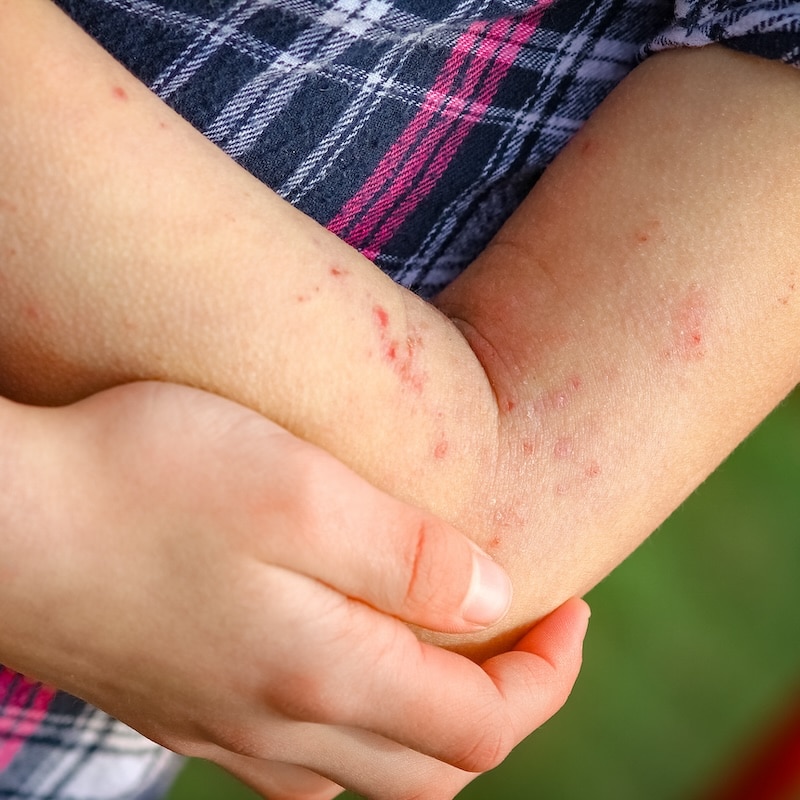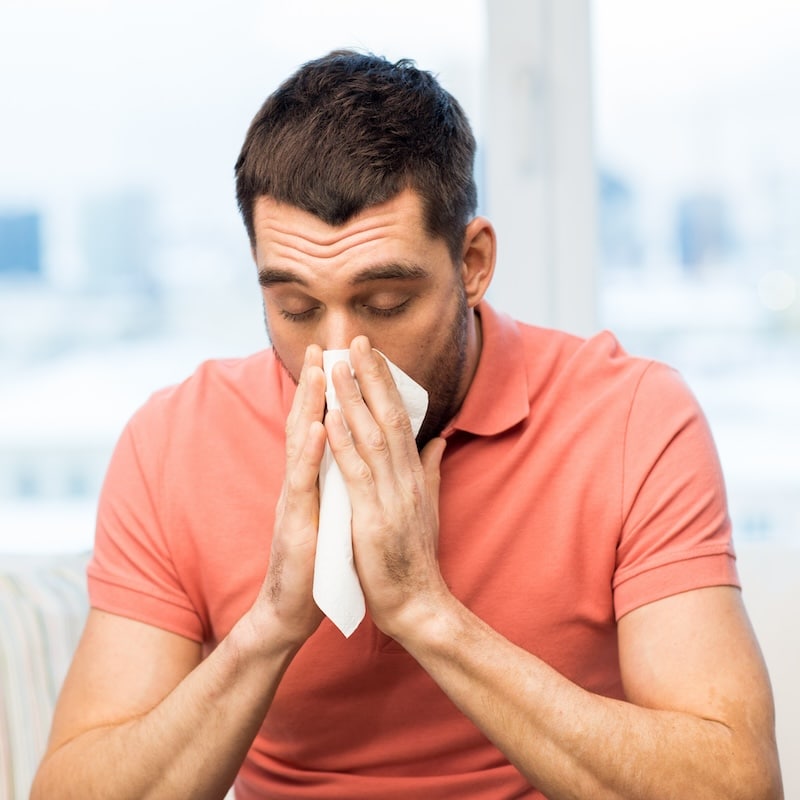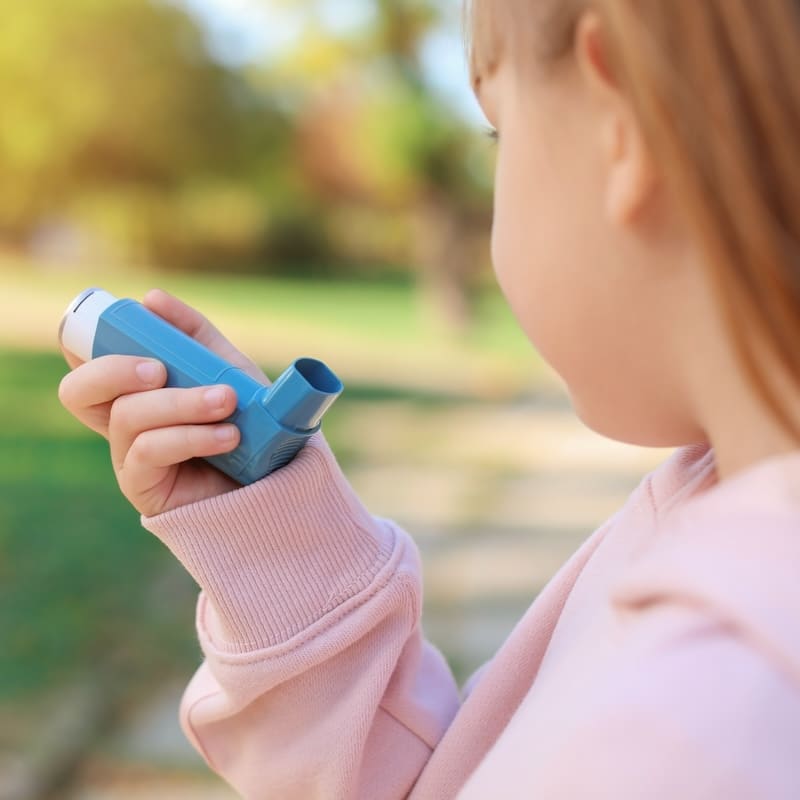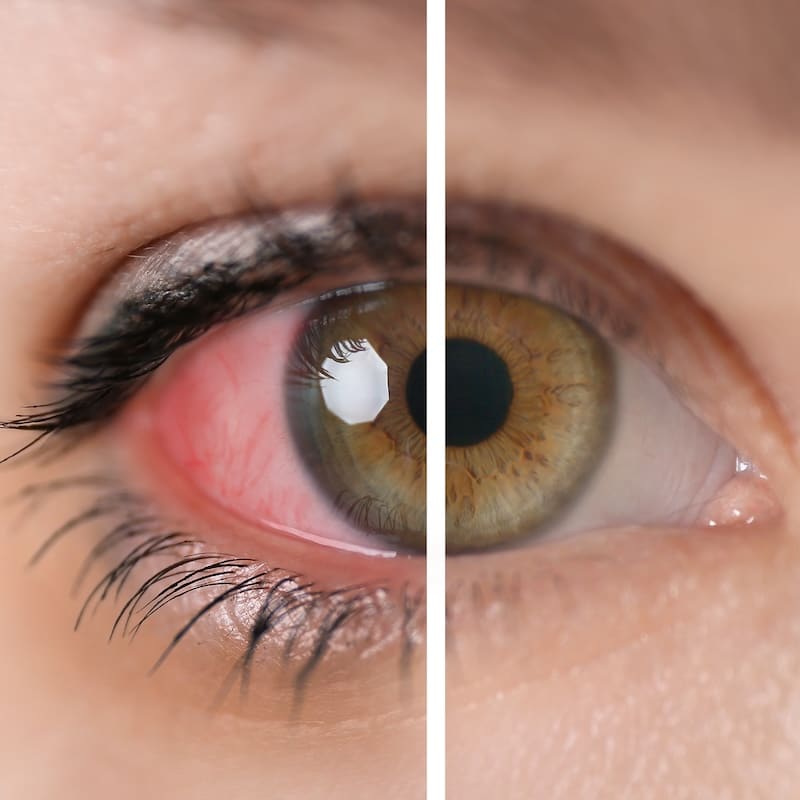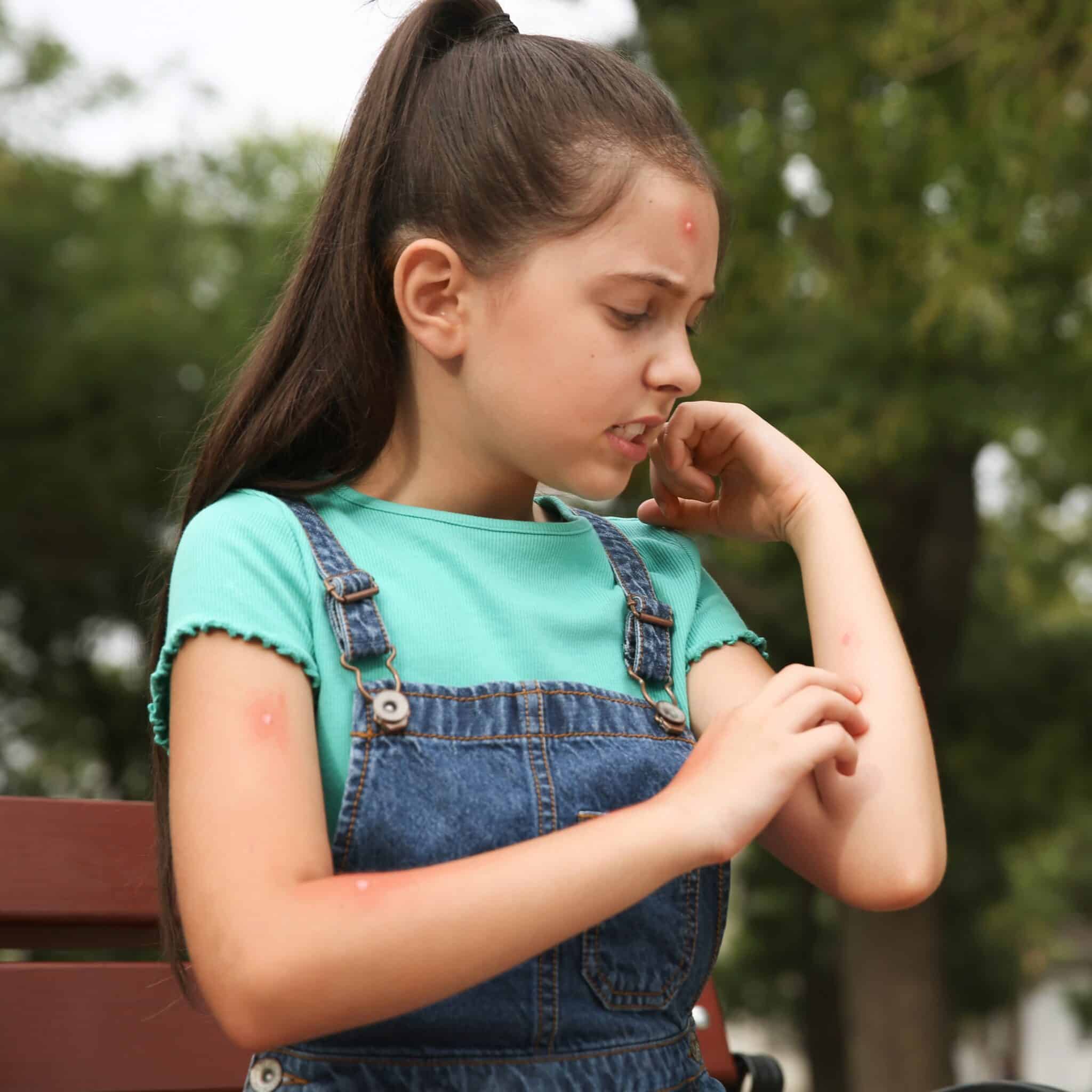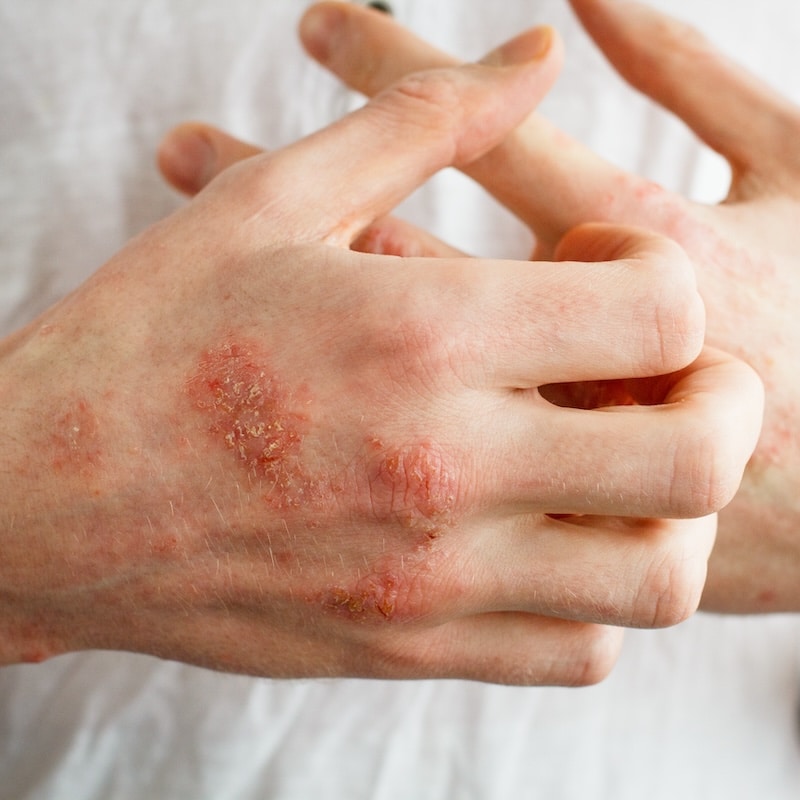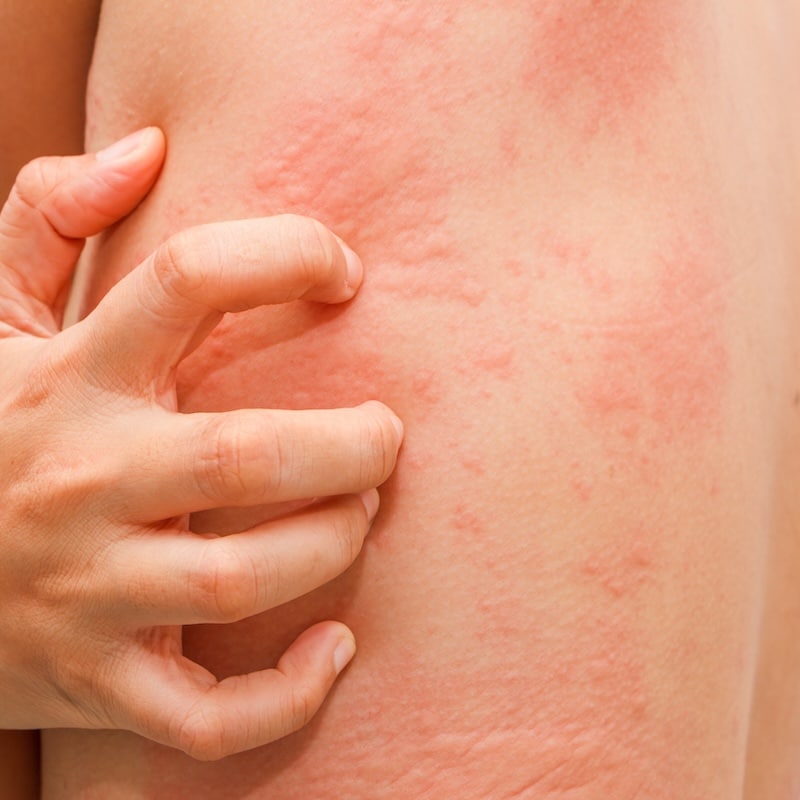Treatment / Services
Asthma and Allergy Treatment
McGovern Allergy & Asthma Clinic stands at the forefront of providing comprehensive diagnostic testing and advanced asthma and allergy treatments for individuals grappling with allergy and asthma-related symptoms. Recognizing the critical impact these conditions can have on one’s quality of life, the clinic is committed to offering personalized and effective solutions.
At McGovern Allergy and Asthma Clinic, a dedicated team of healthcare professionals employs a multifaceted approach to address the diverse needs of patients. Beyond simply diagnosing allergies, the clinic’s providers delve into the root causes of symptoms, offering invaluable insights to empower patients in managing their conditions proactively. These specialists go beyond the surface, recommending treatment and formulating preventive measures to help patients avoid potential allergens and mitigate the risk of triggering symptoms.
The collaborative efforts of McGovern providers for asthma and allergy treatment extend to developing tailored strategies for preventing and controlling flare-ups. Understanding that each patient is unique, our board-certified physicians leverage their knowledge to prescribe medications that specifically target and manage individual symptoms, ensuring a more precise and effective course of treatment.
In cases requiring a more comprehensive and lasting asthma and allergy treatment solution, McGovern Allergy & Asthma Clinic excels in providing allergy immunotherapy. This specialized treatment is designed to desensitize patients to the specific substances triggering allergic reactions, offering a transformative approach to long-term symptom management. By gradually exposing patients to increasing amounts of allergens, immunotherapy aims to reprogram the immune system, fostering a reduced sensitivity over time.
Our commitment to patient-centered care is underscored by our emphasis on education. In addition to offering diagnostic and treatment services, the clinic prioritizes educating patients about their conditions, treatment options, and lifestyle modifications that can contribute to better overall health. This holistic approach ensures that individuals receive effective care and acquire the knowledge and tools needed for their well-being.
With a focus on innovation and compassionate care, McGovern Allergy & Asthma Clinic emerges as a beacon of hope for those navigating the complexities of asthma and allergy management.
Allergy Treatment and Asthma Treatment At McGovern Allergy & Asthma Clinic
Anaphylaxis
It is important to diagnose and treat it immediately as it can be fatal. Epinephrine auto-injectors are commonly prescribed and can save lives. Diagnosing the cause of anaphylaxis is essential in order to prevent future events. Our doctors are highly trained in managing this disease.
Allergic Contact Dermatitis
Allergic Contact Dermatitis is an exaggerated response of the immune system when directly exposed to an allergen. The most common ones are nickel in jewelry and balsam of Peru in some foods and cosmetic products. Another example is poison ivy.
Our doctors will help you by diagnosing the culprit allergen (by performing patch testing to the most common allergens) and advising how to avoid them to prevent future exposures and skin flare ups. Allergy treatment also includes topical creams and ointments as well as oral medications in severe cases.
Allergic Rhinitis and Sinusitis
Our sinuses are cavities within our facial bones, located behind the nose, around the eyes and in the cheekbones. When these sinuses become inflamed due to allergies, blockage can cause chronic symptoms and/or infections.
Our allergists will help you by diagnosing the nature of the rhinitis/sinusitis and by treating the allergies. Avoiding triggers, prescribing medications, and providing allergy desensitization or “allergy shots” are parts of our comprehensive treatment plan. Common indoor allergens include dust mites, molds or animal dander while pollens are the main outdoor ones. Properly managing allergies can sometimes prevent the need for surgery.
Asthma
Our doctors will provide you comprehensive diagnostic and treatment plans to manage asthma, with the goal of controlling the underlying lung problem, resolving symptoms, and providing you with a better quality of life. They will determine the diagnosis, identify environmental triggers by allergy testing, perform lung function test, teach proper use of maintenance and rescue inhalers, and provide individualized asthma action plans. They are up to date in providing newly approved medications for asthma.
Eye Allergies
Our allergists will help you by diagnosing the nature of the conjunctivitis and by treating these allergies. Avoiding triggers, prescribing medications and providing allergy desensitization or “allergy shots” are parts of our comprehensive treatment plan. Common indoor allergens include dust mites, molds and animal dander while pollens are the main outdoor ones.
Food Allergies
Our doctors can perform allergy testing to different types of foods and thoroughly assess your risk of developing an allergic reaction. They will give individualized anaphylaxis action plans to prepare you to manage food allergy reactions at home, at work, or at school. They will educate you on how to read food labels and how to avoid specific food groups. When appropriate, they may offer food challenges in clinic, which provides a safe and supervised environment to test your tolerance to the suspected food.
Insect Bite Allergies
Common reactions to insects are swelling and redness at the site of an insect bite. However, people who are severely allergic can have a life threatening reaction called Anaphylaxis. These serious reactions can be triggered by honeybees, yellow jackets, paper wasps, hornets and fire ants. Avoiding these insects can be difficult; however certain measures such as avoiding brightly colored clothing and perfumes while outdoors can help. Covering sodas and sweet meals while camping or cooking outdoors and wearing closed toes shoes can also help if you experience anaphylaxis due to insects, carrying an epinephrine auto-injector in order to immediately use it is indicated.
Our doctors will help you diagnose the exact insect and guide you on avoidance and treatment. Allergen desensitization or “allergy shots” are an effective long-term allergy treatment. Our doctors will prescribe injections with increasing amounts of the allergen in order to allow your body to build immunity.
Skin Allergies
Atopic Dermatitis (atopic eczema) is the most common of all the allergic skin conditions affecting up to one in five infants and some adults. Environmental and/or food allergens can trigger an immune response that causes the skin to be inflamed and together with a damaged skin barrier, perpetuate the disease. Dry skin, itching, skin redness and breakdown are some of the usual symptoms that can progress to infections. This may be stressful for many patients because of other people’s belief of the rash being contagious.
Confirming the diagnosis of eczema is important to identify the correct treatment which can include moisturizers, topical creams, ointments and sometimes antibiotics. Depending on each case, bleach baths and wet wraps can be prescribed. The above management can decrease social challenges in people with eczema due to the belief of others of the rash being contagious.
Urticaria and Angioedema
Angioedema that does not occur with urticaria is usually non-allergic in nature. It can be due to medication use (most commonly involved are the angiotensin-converting-enzyme-inhibitor medications for blood pressure), or to a familial condition called hereditary angioedema, or may be acquired secondary to underlying blood disorders.
Our doctors will guide you in identifying the cause of your urticaria/angioedema. They will obtain a thorough medical history and determine the most cost effective tests for you. They will provide treatment plans to maximize control of your symptoms and improve your quality of life.
Patients with both urticaria and angioedema who fail standard therapy may be offered more advanced medications such as immunosuppressive drugs or omalizumab. Patients with hereditary and acquired angioedema are treated with special medications allergists are trained to use.


